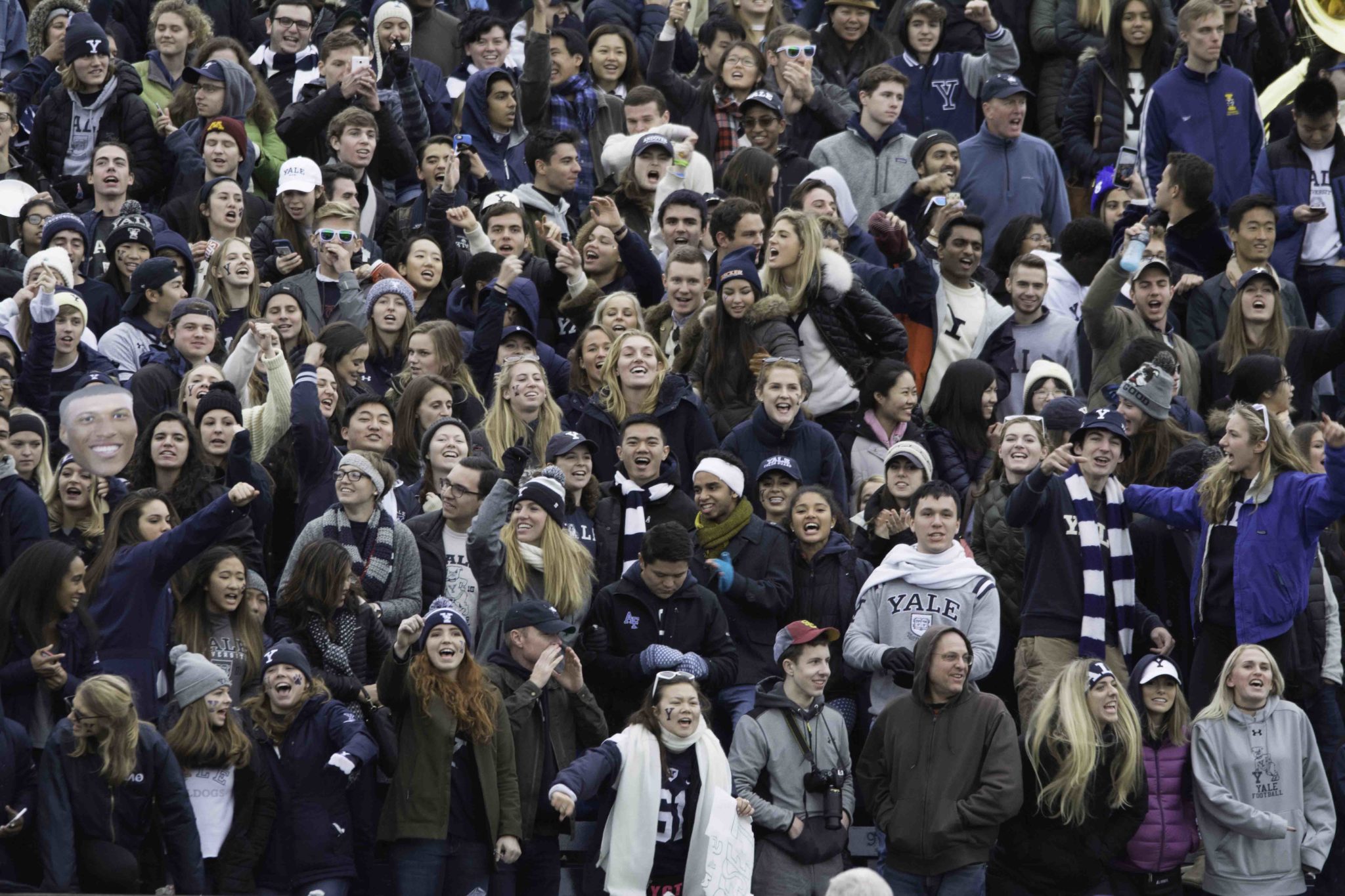
Chaotic lines and student stampedes plagued the Yale-Harvard Game last weekend as 51,426 attendees were held up at slow security checkpoints for both the student tailgate village and the Yale Bowl.
Even though the student tailgate village opened at 10:30 a.m. on the day of The Game, the area remained surprisingly sparse until roughly 11:50 a.m. Students entering the tailgate were subject to enhanced security measures this year, which included passing through a metal detector and having their possessions scanned. Chief of Yale Police Ronnell Higgins told the News that the security measures at the tailgate were intended to “expedite entry into the stadium.” Higgins said they decided to obtain the metal detectors this way all students entering the tailgate were screened so that they would be able to enter the stadium directly from the tailgate area rather than having to get in line to be screened once the tailgate ended.
But after experiencing significant delays, some students waiting to enter the tailgate attempted to charge past the security checkpoint. In response to the back up, which eventually began to present a safety risk, security officials opted to move the metal detectors aside and let students through without screening.
“Screening at the student tailgate was slow,” Higgins told the News. “In an effort to alleviate the backup, students were allowed into the student tailgate area.”
Similar security measures were in place for the Game two years ago, Higgins said, adding that, as is the protocol for all major events, an “After Action review” will be conducted to make enhancements where appropriate.
While Higgins told the News that the Yale police did receive “some positive feedback” from attendees about the security measures at the game, students interviewed expressed frustration about the logistical issues surrounding the event.
“It was definitely very confusing. I was right by the metal detectors when they got removed, and the people were stampeding, and that was pretty crazy,” said Nico Moscoso ’21. “I was definitely a little nervous as to what was going on, there were a lot of officers running in and I wasn’t sure whether what was happening was a good or a bad thing … it seemed like there was a lot of general confusion.”
Crowd control problems also affected entry into the Yale Bowl, with officials suspending screening measures shortly after students were allowed in.
Amanda Lee ’20 said she remembers sitting in the Yale section of the Bowl when a “stampede” of students entered. She noted that the one crowd control officer stationed near her was not able to handle the unexpected influx of people and that some attendees rushing in even began climbing out of the Yale Bowl entrance tunnels and into the stands rather than waiting in line for a seat.
Yale College Council Events Coordinator Tyler Bleuel ’19, who arrived to set up the YCC tailgate at 8 a.m. and left at 1:30 p.m., said he was concerned about how slow the security line was moving and whether enough people would actually make it inside the village before The Game.
“All of a sudden, the place was just absolutely packed,” said Bleuel. “At that point, it was absolutely great, and people were having fun, but at the beginning it was stressful not knowing what was going on.”
Bleuel added that the tailgate took so long to get going that it lasted an extra hour until 1:30 p.m., even though the University had announced earlier that this year’s tailgate would last only two hours from 10:30 a.m. to 12:30 P.M. This meant that many students missed the beginning of The Game, Bleuel said.
Harvard students quoted in a Nov. 21 Harvard Crimson report cited the presence of SWAT cars and officers armed with semi-automatic guns as evidence of the enhanced security measures. But according to Higgins, SWAT personnel have always been deployed at the Yale-Harvard Game, although this year they were more visible at entry points.
Higgins did not immediately respond to an email asking about students stampeding and attempting to charge past metal detectors.
Yale beat Harvard 24–3 at this year’s Game.
Britton O’Daly | britton.odaly@yale.edu







